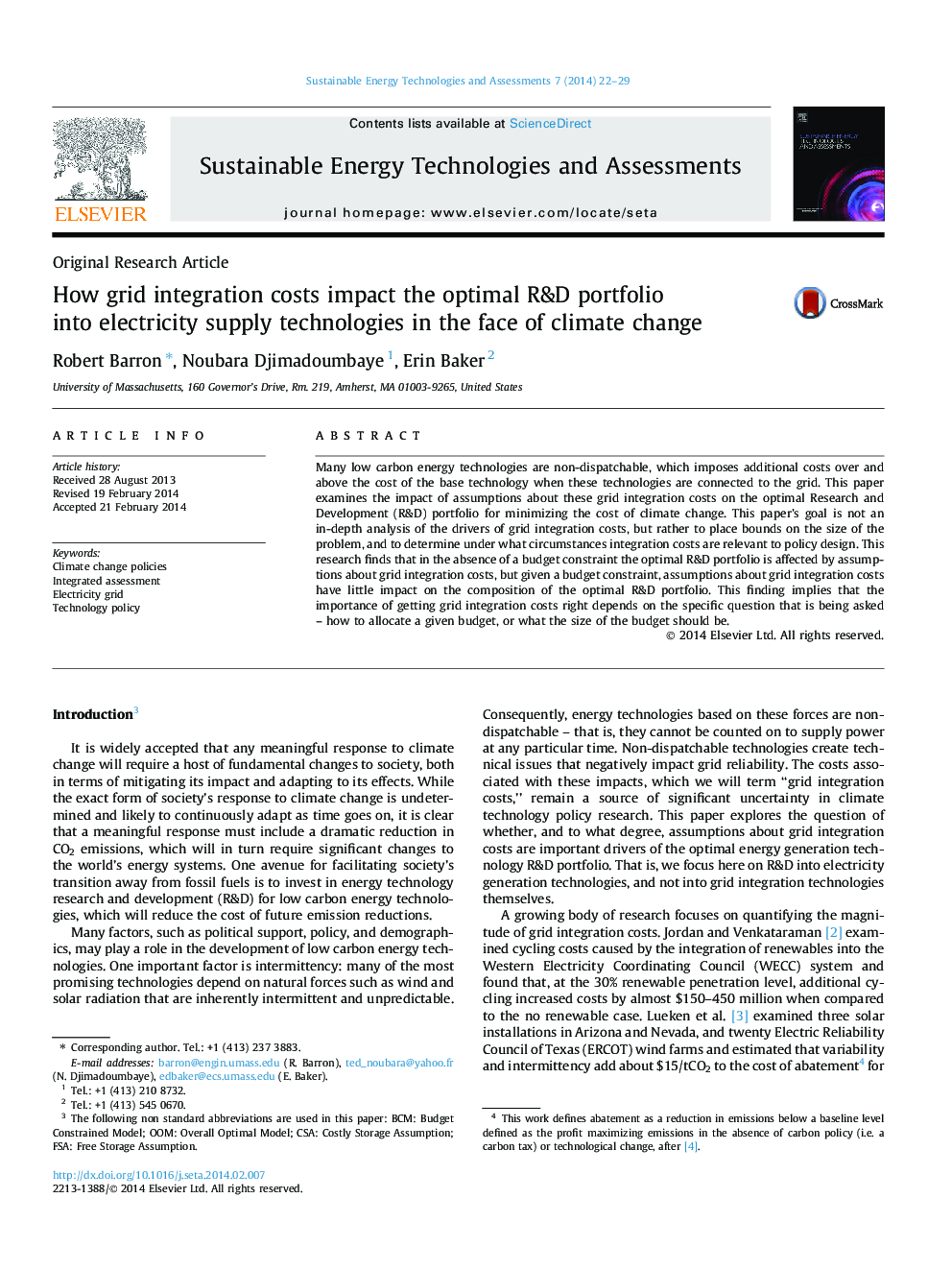| Article ID | Journal | Published Year | Pages | File Type |
|---|---|---|---|---|
| 1752636 | Sustainable Energy Technologies and Assessments | 2014 | 8 Pages |
•We analyze energy technology R&D under several assumptions about grid integration.•We compare two funding scenarios: with and without a budget constraint.•With a budget constraint R&D funding is unaffected by integration cost assumptions.•Without a budget constraint integration cost assumptions impact R&D funding.•The impact of grid integration cost assumptions depends on the question asked.
Many low carbon energy technologies are non-dispatchable, which imposes additional costs over and above the cost of the base technology when these technologies are connected to the grid. This paper examines the impact of assumptions about these grid integration costs on the optimal Research and Development (R&D) portfolio for minimizing the cost of climate change. This paper’s goal is not an in-depth analysis of the drivers of grid integration costs, but rather to place bounds on the size of the problem, and to determine under what circumstances integration costs are relevant to policy design. This research finds that in the absence of a budget constraint the optimal R&D portfolio is affected by assumptions about grid integration costs, but given a budget constraint, assumptions about grid integration costs have little impact on the composition of the optimal R&D portfolio. This finding implies that the importance of getting grid integration costs right depends on the specific question that is being asked – how to allocate a given budget, or what the size of the budget should be.
